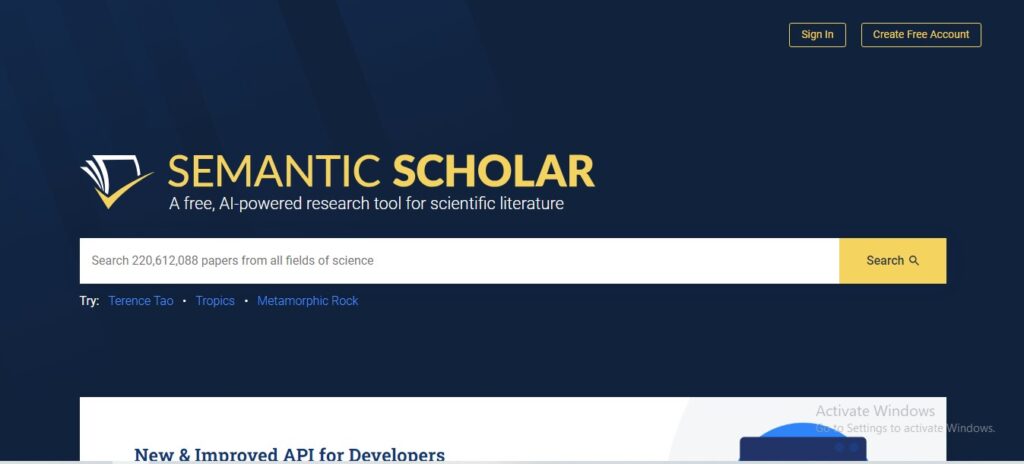Semantic Scholar: AI-Powered Research Tool for Scientific Literature
Description
Semantic Scholar is a free, AI-powered research tool for scientific literature. Developed by the Allen Institute for AI, it employs advanced natural language processing to help researchers navigate and understand complex academic papers.
Detailed Description:
Semantic Scholar uses AI to analyze and index millions of research papers, extracting key information such as authors, citations, and topics. This allows for more precise and relevant search results compared to traditional keyword-based searches. The platform also provides features like automatic summarization, citation analysis, and personalized recommendations to streamline the research process.
Key Features and Functionalities:
- AI-powered search: Finds relevant papers based on semantic meaning, not just keywords.
- Automatic summarization: Provides concise summaries of research papers.
- Citation analysis: Analyzes citation patterns to identify influential papers and research trends.
- Personalized recommendations: Suggests relevant papers based on your research interests.
- Author pages: Provides detailed information about authors and their publications.
- Topic exploration: Explores research topics and identifies key concepts and connections.
- Citation graph: Visualizes the relationships between papers through citations.
Use Cases and Examples:
- Researchers: Discover relevant papers, analyze research trends, and stay up-to-date on the latest findings.
- Students: Find and understand academic papers for assignments and research projects.
- Professionals: Stay informed about industry trends and access relevant research for informed decision-making.
- Anyone interested in science: Explore scientific literature and learn about new discoveries.
User Experience:
While Semantic Scholar focuses on providing an AI-powered search engine for academic literature, its design and features suggest a user experience that prioritizes:
- Efficient Discovery: Semantic Scholar uses AI to analyze and understand research papers, allowing users to quickly find relevant articles and extract key information.
- Enhanced Comprehension: The platform provides features like paper summaries, author profiles, and citation maps to help users understand the context and impact of research.
- Connected Exploration: Semantic Scholar connects related papers and topics, allowing users to explore research in a more interconnected and meaningful way.
Pricing and Plans:
Semantic Scholar is a free platform with no paid subscriptions or premium features.
Competitors:
- Google Scholar: A widely used search engine for academic literature.
- PubMed: A database of biomedical literature.
- Web of Science: A citation indexing service for scientific and academic research.
Unique Selling Points:
- Semantic Scholar's AI-powered features, such as semantic search and automatic summarization, provide a more efficient and effective research experience.
- The platform's focus on citation analysis and research trends helps users understand the context and impact of scientific publications.
- The free and open access to research papers makes Semantic Scholar a valuable resource for the global research community.
Last Words: Visit SemanticScholar.org today and experience the future of research discovery.
